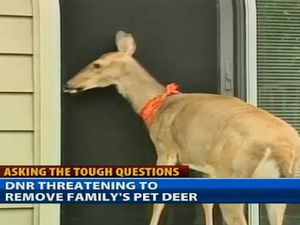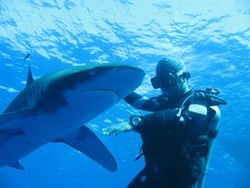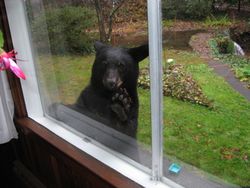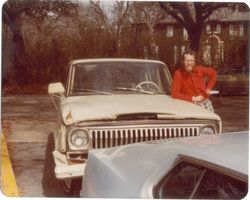
family in Michigan? The ones suing the state because they wanted to
keep the deer that they raised from a fawn? The family who started a
petition that received over 16,000 signatures so that they could keep
their wild deer? Ever heard of that family?
Well I did, a month ago when the case
was first going into court. I agreed with the state, not the family.
Yes, the story is very heart-warming. A family takes in a baby fawn
after its mother was killed by a car. They are somehow able to keep
it alive for years and in the meantime fall in love. They even name
it Lilly.

them, do not know is that humans are very poor substitutes for a
mother the same species.
Did you know that deer eat plants that
are toxic to them? In small doses and with other plants as well.
Scientists have found that they actually do need these toxins for
certain bodily functions. This information has only come to light in
the past few years. Fawns only learn this information from their
mothers. Obviously this family thinks that they are providing a good
home for the deer, but they also made a decision to never let it lead
a normal life.
They took that path a long time ago,
well after the deer had turned two years old. At that point in deer
biology, yearlings would be on their own, in their own territory, and
getting ready to become mothers or fathers themselves.
Sorry for the rant. It just boggles my
mind whenever I see stories like this. I do not get that feel good
feeling that others might, nor do I agree with this sort of practice.
It all stems from what I have learned
in taking my degree in Range and Wildlife Studies, at Texas A&M
Kingsville.
To put it simply, humans cannot adequately nor
appropriately replace a wild animal's natural habitat nor substitute
the childhood conditions that they would get in the wild. If you
watch TV enough you will see that even the professionals, those who
do get the chance to hand -aise wild animals, do not do so on a whim.
The only people who I see doing this on a regular basis are zoo
keepers.
It all comes down to misconceptions, or
even myths, that humans have for wildlife.
- Infant animals handled by humans
will be immediately rejected by their parents - A solitary young animal has been
orphaned - A Good Samaritan is an
acceptable substitute for the natural wild parents - The wildlife “rescuer”
mistakenly perceives the wild infant as an acceptable long term
pet
In the case that I mentioned earlier
the family did find a dead doe near the fawn so the first two
misconceptions can be thrown out. However, the fact that they still
believe the second two is alarming and concerning for the rest of the
country.

pessimistic, but from what I have seen over the years more and more
Americans will be, and have been, doing more harm than good for
wildlife in general, because of these common assumptions, or
misconceptions.
The feeding of wildlife from raccoons
to swans to ducks to bears habituates wildlife to humans. It is
similar to a documentary I saw recently on sharks in the Red Sea. A
tourist area that in three days was rocked by six shark attacks on
humans. Only one fatality in all, but at least four lost one limb.
According to what I saw, it all came
down to scuba-diving tour guides feeding the sharks to get more
costumers. The sharks then started to associate humans with free
food. When later they were hungry they did the same things as before,
but to people who, first, did not have fish for them, and, second,
were not those who gave them food in the first place. This caused the
attacks.
Yet, there are many people who do the
same to terrestrial wildlife in the United States all the time.

people feeding bears. One video I saw showed at least ten bears in a
woman's back yard. If you think for one second that they did nothing
when she stopped giving them food, then please check yourself into
the closest mental institution. Animals repeat what works.
In Texas, there are whole communities
that feed deer from their front yards, and then wonder why there
insurance costs went up.
The whole point of this is that humans
do things they think are responsible and good for wildlife, yet then
turn around and wonder why those same animals attack them. I worry
for that family in Michigan and even wonder what might happen in a
few years. What might there community say then? Will the people who
signed their petitions in the first place even remember that they
helped with the ensuing problems? Will we be seeing more cases like
this across the United States?
What I do know for certain is that
there will be problems. That family has never had deer before, and
they think they are as good as a doe, and they are not.
Humans are humans, we do not know what
is best for deer, bears, or even sharks. They are not dogs and cats
that we can control. Something will go wrong.










